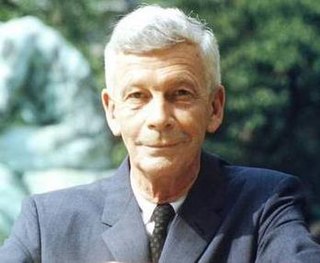A Quote by Osamu Dazai
Is it not true that no two human beings understand anything whatsoever about each other, that those who consider themselves bosom friends may be utterly mistaken about their fellow and, failing to realize this sad truth throughout a lifetime, weep when they read in the newspapers about his death?
Related Quotes
The truth may often be carried about by those who themselves remain all unaware of it. They bear that which has weight and substance and yet for them has no name whereby it may be evoked or called forth. They go about ignorant of the true nature of their condition, such are the wiles of truth and such its stratagems.
Micromessaging -- communicating with other human beings through visual, audible, sublingual means, no doubt predates our ability to speak. We actually read micromessages quite naturally without thinking about them. You might say human beings read each other's micromessages subconsciously, in the same way that one dog understands another dog is unfriendly simply because the dog's fur is standing on end. The dogs read each other perfectly. It's not all that different for people.
Although human beings are incapable of talking about themselves with total honesty, it is much harder to avoid the truth while pretending to be other people. They often reveal much about themselves in a very straightforward way. I am certain that I did. There is nothing that says more about its creator than the work itself.
I think that most of us, anyway, read these stories that we know are not "true" because we're hungry for another kind of truth: the mythic truth about human nature in general, the particular truth about those life-communities that define our own identity, and the most specific truth of all: our own self-story. Fiction, because it is not about someone who lived in the real world, always has the possibility of being about oneself. --From the Introduction
The very condition of having Friends is that we should want something else besides Friends. Where the truthful answer to the question "Do you see the same truth?" would be "I see nothing and I don't care about the truth; I only want a Friend," no Friendship can arise - though Affection of course may. There would be nothing for the Friendship to be about; and Friendship must be about something, even if it were only an enthusiasm for dominoes or white mice. Those who have nothing can share nothing; those who are going nowhere can have no fellow-travellers.
We do not know what awaits each of us after death, but we know that we will die. Clearly, it must be possible to live ethically-with a genuine concern for the happiness of other sentient beings-without presuming to know things about which we are patently ignorant. Consider it: every person you have ever met, every person you will pass in the street today, is going to die. Living long enough, each will suffer the loss of his friends and family. All are going to lose everything they love in this world. Why would one want to be anything but kind to them in the meantime?
Friends never cheat on each other, or take advantage, or lie. Friends do not spy on one another, yet they have no secrets. Friends glory in each other's successes and are downcast by the failures. Friends minister to each other, nurse each other. Friends give to each other, worry about each other, stand always ready to help. Perfect friendship is rarely achieved, but at its height it is an ecstasy.
The Bible is a wonderful book. It is the truth about the Truth. It is not the Truth. A sermon taken from the Bible can be a wonderful thing to hear. It is the truth about the truth about the truth. But it is not the truth. There have been many books written about the things contained in the Bible. I have written some myself. They can be quite wonderful to read. They are the truth about the truth about truth about the Truth. But they are NOT the Truth. Only Jesus Christ is the Truth. Sometimes the Truth can be drowned in a multitude of words.



































